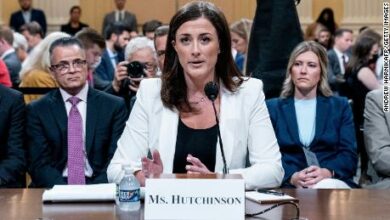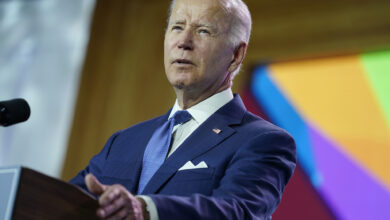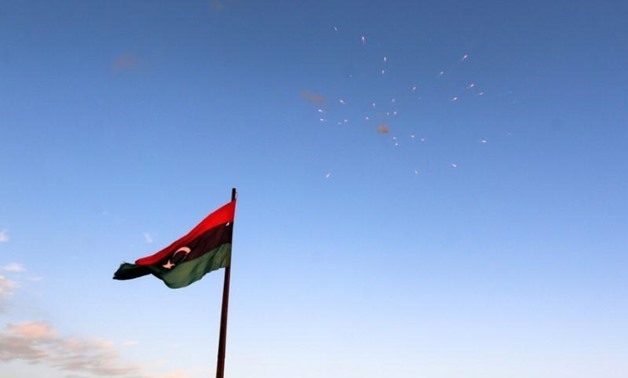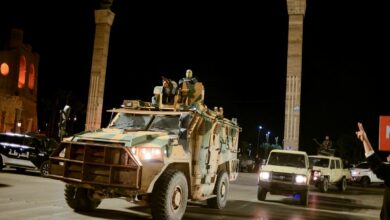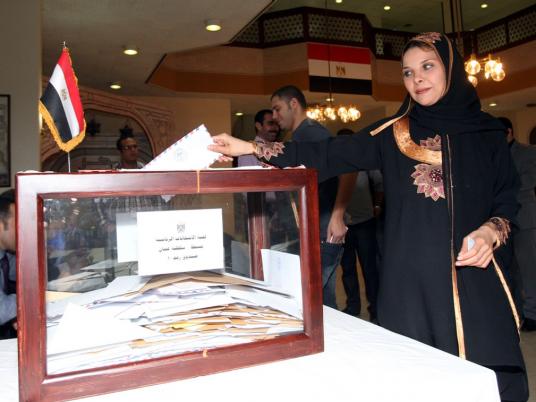
Egyptians are heading to the polls Wednesday to pick their president with the outcome unknown for the first time. What is also unknown is what powers and responsibilities the winner will have.
Many expected the Constituent Assembly selected by Parliament to draft a new constitution before the election. But after the assembly elected by the Islamist-dominated Parliament was rejected by the majority of political forces, it became apparent that the role of the future president would not be decided even in the short term. Questions about whether the president can dissolve Parliament, appoint a Cabinet, or control the armed forces — among the most contentious and important issues – remain up in the air.
Sweeping powers legacy
Egypt’s last constitution, written in 1971 and dissolved following Hosni Mubarak’s departure last year, granted sweeping powers to the president.
Article 141 gives the president the power to appoint and remove the prime minister, as well as the minister and deputies in consultation with the prime minister. Article 148 granted the president the right to declare a state of emergency, but only with the approval of Parliament and for a limited period of time. Under Mubarak, the state of emergency was always rubber stamped by the ruling party. Article 150 grants the president the authority to declare war with the approval of Parliament only. The president also is the supreme chief of the police and the supreme commander of the armed forces.
In 2007, a series of constitutional amendments were passed through a public referendum, which amounted to additional powers for the president. These include the right of the president to refer civilians to military courts and to dissolve Parliament without a referendum.
Contentious interim constitution
Following the toppling of Mubarak, the Constitutional Declaration, issued unilaterally by the Supreme Council of Armed Forces in March 2011, gave the executive, the SCAF, an even stronger set of authorities, including promulgating laws.
In this declaration, the SCAF claimed two major powers: the power to legislate until a legislature is elected and executive power to until a president is elected. In other words, the SCAF empowered itself to issue laws, public policy and the public budget, call Parliament to convene, appoint cabinet, represent the state domestically and abroad, and appoint civilian and military employees, among other functions.
A potential constitutional declaration?
Local media reported earlier this week that the SCAF plans to issue another, complementary Constitutional Declaration soon, diminishing the powers the generals held over the past 13 months. The amendments to presidential powers include empowering Parliament to appoint ministers, excluding the foreign, finance, interior and defense ministries, and severely limiting the president's influence over the armed forces, according to leaks regarding the potential declaration.
The president will reportedly retain the power to dissolve Parliament and appoint the public prosecutor, the grand sheikh of Al-Azhar and the grand mufti of the state. The president cannot go to war without approval from Parliament and the SCAF, which has also reportedly enshrined its own special status by keeping its budget secret and prohibiting any legislation pertaining to the armed forces without its express approval.
The potential declaration has elicited criticism from presidential candidates and political parties. Abdel Moneim Abouel Fotouh stated he was “deeply disturbed” by it and Khaled Ali held a press conference Monday specifically to criticize it. Many of the candidates agreed that it was unnecessary as the Constitutional Declaration already outlines the powers of the president, powers that the SCAF enjoyed while in power.
Ali labeled it a “catastrophe,” adding that “the SCAF is trying to protect itself and that is unacceptable. The handover of power is not decoration, the president represents the will of the people and that is enshrined in the Constitutional Declaration issued by the SCAF and supported by the Muslim Brotherhood.”
Tarek al-Beshry, a former judge, wrote in Al-Shorouk on 21 May that the SCAF has no authority to produce such charters now that its legislative role has ended with the election of Parliament.
Indeed, Article 25 of the March Constitutional Declaration stipulates that the president must carry out the duties outlined in Article 56, except for the first two provisions, which were temporarily granted to the SCAF until Parliament was elected. The first two provisions pertain to legislation and issuing public policy and the public budget.
If the complimentary declaration is not issued, the new president will presumably rule according to Constitutional Declaration the SCAF issued in March 2011.
Hurdles of a new constitution
Most expect the next constitution, once it is finally drafted and approved by a referendum, to limit the president’s authority compared to previous legal charters.
More generally, the next constitution will witness the complex power sharing configurations by the country’s poles of authority; namely the SCAF, a predominantly Islamist Parliament and a yet-to-be elected president.
The most notable contention revolves around the future of civil-military relations and how much power is dispensed to both branches.
Different political forces are arguing for varied sets of responsibilities for the next president, including a mixed parliamentary-presidential system. But when the process of drafting this constitution and agreeing on its final terms will be finished is unknown.

